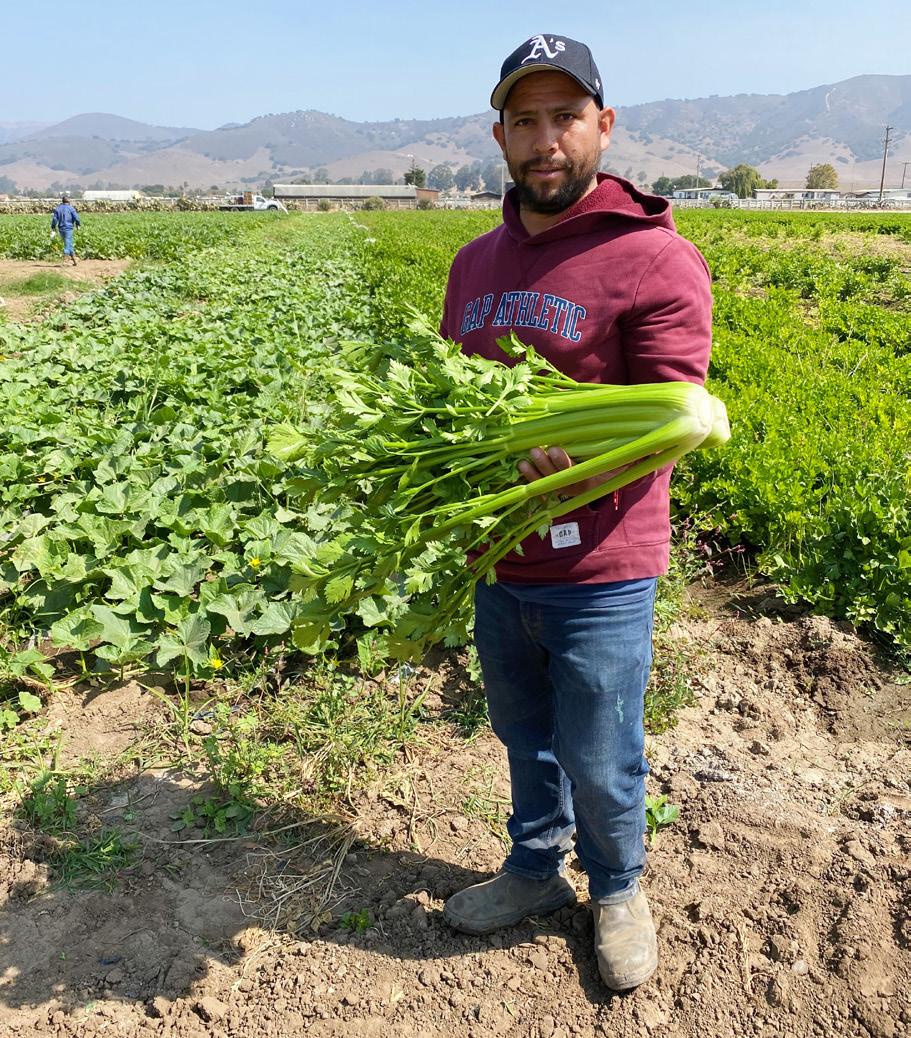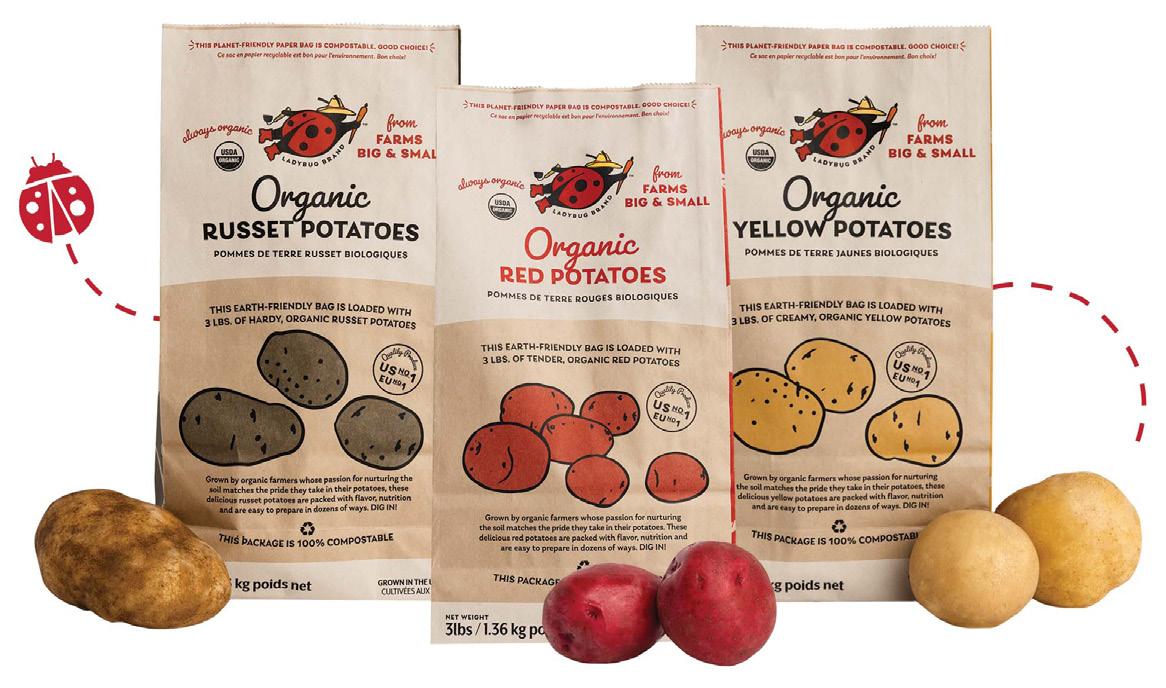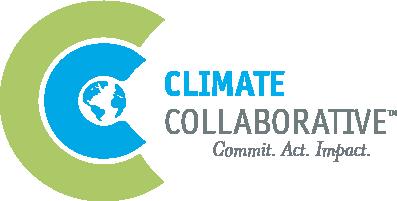
5 minute read
ENVIRONMENT
As the ecological, social and financial benefits of organic farming and food become more and more apparent, we stay on the cutting edge of organic handling methods, supplier development and food safety practices.
ORGANIC PRODUCE Our Priority
Organic farming, sourcing, handling and advocacy are the foundation of our company and our hope for the world.
Forming trusting, personal relationships with the farmers we work with near and far is fundamental to who we are. That’s why 96% of the produce sold was certified organic sourced from over 350 suppliers, with 25% grown in the Northwest.
ORGANIC INTEGRITY & FOOD SAFETY
OGC is an organic handling facility certified by Oregon Tilth. This enables us to provide assurances of the integrity of the organic produce we handle. Ensuring that the products we source, market and distribute are grown and handled organically and safely has always been a critical part of our business. In 2021, we welcomed Food Safety and Compliance Manager Humberto Maldonado to our team. With his leadership, we are continuing to expand our efforts to bring the safest and highest quality produce to our customers. Improvements included using an alternative alcohol-based cleaner and sanitizer and providing technical assistance to our vendors to meet market requirements. OGC teams worked diligently to maintain and improve our Humberto Maldonado, facilities and practices Food Safety & Compliance Manager through extensive supply chain disruptions, passing our food safety and organic certification audits with flying colors. Auditors did not identify a single non-compliance with any organic standard.
Supplier Development
OGC works in partnership with our growers to sustain and develop their business. Here’s just one example of a partnership nurtured in 2021.
BUCIO ORGANIC FARM CARVES ITS SPOT IN SALINAS
Surrounded by the Salinas Valley’s industrial-scale operations, Bucio Organic Farm produces row crops on 17 acres of prime land. OGC was introduced to young farmer/owner Rigoberto Bucio by Kitchen Table Advisors (KTA). KTA’s mission is to provide business advising and relationship-building to smallscale regenerative farmers in Northern California. KTA facilitated conversations to help Bucio and OGC understand how to best support each other. In the late summer of 2021, OGC had the opportunity to meet Rigoberto on the farm and tour his pristine rows of kale, celery, cucumber and more. We proudly source from Bucio Organic Farm and are looking for opportunities to work with additional diverse, small-scale growers across our sourcing regions.
Rigoberto Bucio – Bucio Organic Farm, Salinas Valley
Zero Waste is our Goal
(we’re getting closer each year!)
Becoming a zero-waste company requires a clear understanding of how and where our waste is produced. In 2021, we enlisted Portland State University MBA students to help us better understand our waste stream, identify opportunities for waste reduction, and develop time-bound goals for achieving zero waste across our facilities.
SUSTAINABLE PACKAGING
We continue to evaluate sustainable packaging innovations for OGC’s Ladybug Brand produce line. In 2021, this work included beginning a comprehensive research effort to assess alternatives or improvements to labels, clamshells, poly and netted bags and waxed boxes. 100% of Ladybug Brand potatoes packed in-house went into compostable paper bags, keeping 1.5 million plastic bags out of the waste stream last year. 45,000 waxed cardboard boxes were kept out of the waste stream in 2021 by using a water-resistant coated box that contains no wax, making it easy to recycle.

Climate Action
Organic production methods that emphasize soil health help farmers increase their resilience to the impacts of climate change. Like our partners, OGC is dedicated to environmental stewardship including actions to mitigate our carbon footprint and reduce fossil fuel consumption.
MEASURING EMISSIONS
OGC is committed to measuring and managing our greenhouse gas (GHG) emissions by adopting Scope 1 & 2* calculating and reporting. While we have tracked these figures internally for several years, we committed to strengthening our reporting in 2021 through a partnership with the University of Oregon and external experts. These partnerships help ensure the thoroughness and accuracy of tracking as we hold ourselves accountable and set goals for the future. OGC defined 2021 as the baseline year for its GHG emissions. By taking inventory of our Scope 1 and 2 emissions we learned the impact of our direct operations and electric energy consumption. In 2021, our Scope 1 and 2 emissions totaled a CO2 equivalency of 8,378 metric tons. For context, this is similar to the annual emissions from 1,055 US homes. Measuring GHG emissions is one of the most important steps in our climate action journey. By understanding emissions hotspots, we can set emission reduction targets and develop best practices to reduce OGC’s climate impact.
* Scope 1 emissions are direct GHG emissions that occur from sources that are controlled or owned by OGC. Scope 2 emissions are indirect emissions associated with the purchase of electricity, steam, heat or cooling.
OPERATIONAL SUSTAINABILITY
We strive to operate in a way that has a positive impact on the world. From the produce we source to how we operate our facilities and fleet, OGC considers its environmental impact every step of the way. Our daily operations and business decisions are guided by our values and our commitment to people, planet and purpose—not by profits alone— and a commitment to sustainability is rooted in all aspects of OGC’s operations.
OGC joined the Climate Collaborative as a leader to learn and advocate for climate policy and expand our network in the natural products sector. 100% of our building energy use is o set or sourced as renewable.

161 tons of produce was delivered by bike to Portland urban customers thanks to partner B-Line, avoiding 2,553 miles of driving!
OGC’s fleet ran on 21,676 gallons of pure biodiesel & 391,690 of ultra-low sulfur diesel.
Converting all lighting to LED with motion sensors in 2019, resulted in continued ROI in 2021. This upgrade has reduced our energy use by over 725,000 kWh/year.
We operate 24/7 utilizing our Portland facility and hubs throughout the region.
Seattle Spokane
Portland
Eugene
Medford




